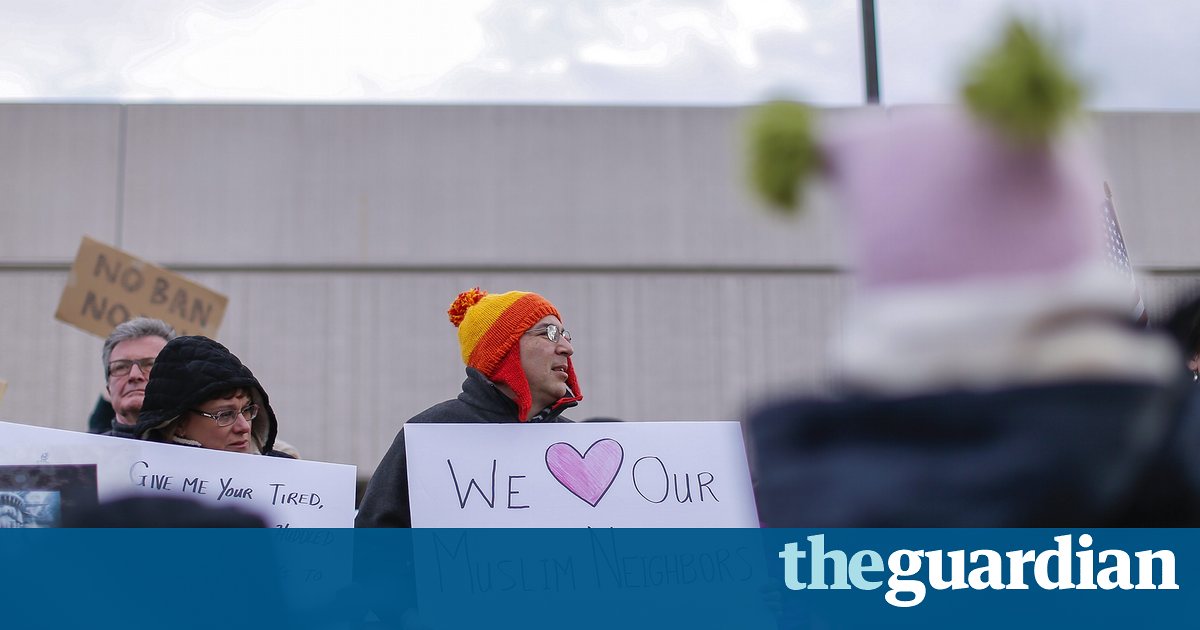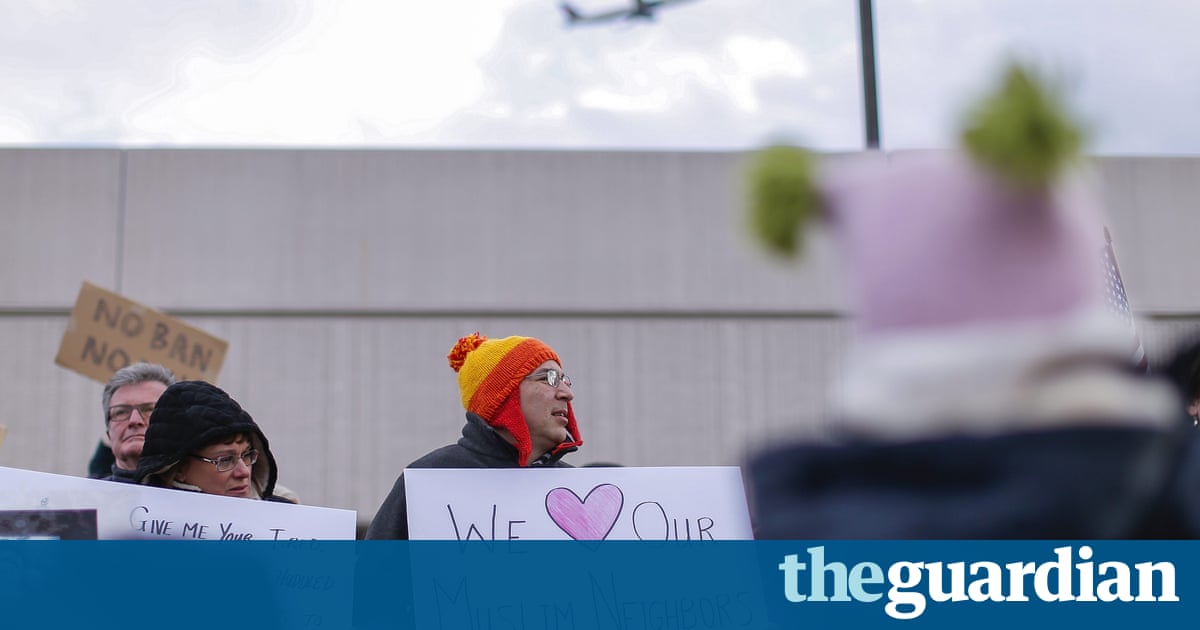A travel ban won’t prevent extremism. It will make it worse | Hassan al-Damluji

My Iraqi father embraced Britishness with the zeal of a convert. I devoted my career to undermining fundamentalism. Am I really to be barred from the US?

Every year my colleagues and I gather in the Gates Foundations global headquarters in Seattle for our annual employee meeting. Its a lot of fun, as it brings together over one thousand diverse and interesting people whose jobs have a simple goal: trying to make the world a better place. But now it looks like Ill have to cancel my travel plans, as Im facing the possibility that Ill be barred from entry to the United States because of my dual nationality.
It has come as a surprise to many that I could fall under the new rule concerning citizens of seven predominantly Muslim countries. As Im always told, I dont look like an Iraqi. But identity is complex and there is no clear line between us and them.
The British foreign secretary, Boris Johnson, claimed that he had won the concession from the White House and that British citizens would still be allowed into America. This afternoon it looks like he might have spoken too soon, and dual nationals like me are still on the banned list but who knows? The uncertainty is part of whats so upsetting about it.
I was born in the UK to two British parents. The more proudly British of them was my father, who was born in Baghdad. After moving to London to study medicine in 1970 when he was 17, he embraced Britishness with the zeal of a convert. He married my mother, whose parents were Irish Catholics, and we grew up in an entirely English-speaking household, taking our summer holidays in such exotic locations as Cornwall.
But as I came to learn more of my Iraqi background, I realised that my fathers Anglophilia was no more than an extreme case of a general theme. My Iraqi family are among the many millions of people who look fondly on Britain, the old colonial power. A great-great uncle was even made an officer in the British army on a trip to England in 1920. My Iraqi grandparents both studied under British instruction in the Baghdad medical school, and both went on to play leading roles in running that important Iraqi institution, which the British had set up during the mandate period. Perhaps part of the bond between my parents rested on the fact that both of them went to schools run by Catholic priests, one of them in Baghdad and the other in Surrey.
After the 2003 invasion of Iraq, I made my mind up to do whatever I could to develop and rebuild the Middle East. I decided to focus on education reform, believing that this would be the key to overcoming extremism and promoting development.
I dont need to tell you that my plan to rescue the Middle East from war and destruction isnt going very well. My family in Iraq have all been forced to leave, except for one aunt, who is a brave campaigner for womens rights. Ive only visited Iraq once, in 2008. But Ive been comforted over the years that at the least I am trying to do something, first as a post-graduate student studying the region, then as a UN intern, then as a management consultant working on education reforms, and most recently at the worlds largest philanthropic foundation, leading their work in the Middle East. At the same time, my journey to reach fluency in Arabic, reconnect with distant relatives and learn more about my own origins has been deeply rewarding. I have always been and remain a proud Briton, but I have added to that a familiarity and respect for another culture, language and people.
But these are difficult times for those of us who are working towards a world of increased cooperation and understanding. Its even harder when your very identity depends on breaking down the hard barriers between us and them. I never thought to get Iraqi citizenship until it was made clear to me that I could only inherit my share from the sale of my great-grandfathers property. So Ive been a dual citizen for precisely one year. Apparently thats enough time to be labelled a potential terrorist.
One of the most powerful weapons against extremism is the millions of people who have a tie to the countries affected by terrorism, but who call Britain, America and other liberal democracies their home. Like many others, I am a passionate believer in the values of peace, tolerance and democracy, but I also have linguistic and cultural knowledge that makes me more effective in making the case against extremism, both at home and in the Middle East. Putting up a not welcome sign on the border of the US does not help me in this task.
Read more: https://www.theguardian.com/commentisfree/2017/jan/30/travel-ban-extremism-iraqi-british